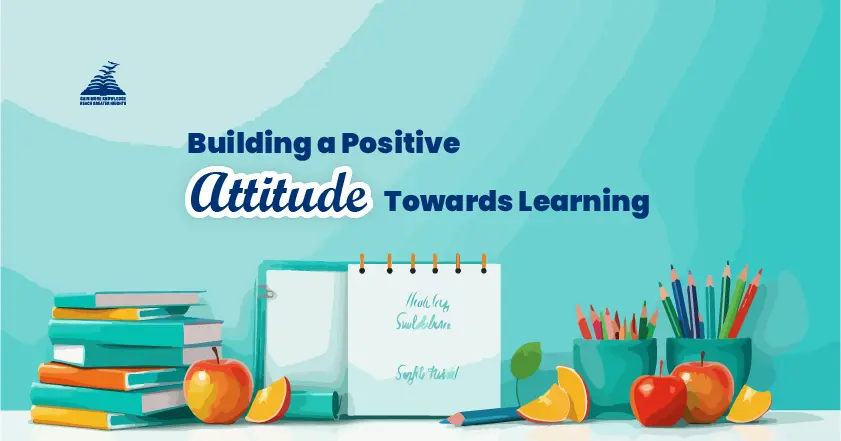The journey of learning begins long before textbooks and exams. In fact, it starts in the early years of best schools in Bangalore when children first step into a classroom, hold a pencil, and discover the joy of learning. That is why developing good study habits from kindergarten is not just beneficial, but essential. These early experiences shape how a child approaches education, builds confidence, and forms lifelong routines.
Whether your child attends a Montessori school in Bangalore, a pre-nursery, or one of the best play schools in Bangalore, nurturing productive study habits in the early years lays the foundation for a successful and enjoyable educational journey.
1. Laying the Foundation Early
Habits formed in the early years often last a lifetime. Kindergarten is a period of rapid child development, where the brain is highly receptive to routines, behaviours, and emotional patterns. Introducing learning habits early helps children view studying not as a task but as a natural, enjoyable part of life. These foundational skills, once established, support smoother transitions into primary, middle, and high school.
2. Building a Positive Attitude
One of the benefits of good study habits in early childhood is the development of a positive relationship with learning. If children associate study time with stress or pressure, they may grow resistant to it. But when learning is presented as play, exploration, and curiosity, they begin to enjoy the process.
Using games, stories, music, and art during study routines helps keep things fun, especially in Montessori schools and early childhood education programs that focus on hands-on learning.
3. Creating Routine and Structure at a Young Age
Young children thrive on consistency. A predictable routine gives them a sense of security and control over their day. Having a fixed time for activities like reading, colouring, or quiet reflection helps children build discipline without even realizing it.
Simple routines like packing the school bag, tidying up toys, or setting the table for homework time create structure and structure is the cornerstone of effective study habits later in life.
4. Encouraging Curiosity and Exploration
Curiosity is a child’s natural engine for learning. Kindergarteners constantly ask questions, explore their environment, and seek answers. Encouraging this through open-ended activities, nature walks, and child-led learning moments teaches them that seeking knowledge is exciting and rewarding.
This early encouragement builds the mindset that will support academic success throughout the school years.
5. Teaching Responsibility Through Small Tasks
Responsibility does not begin with big tasks it begins with small, daily actions. Asking a child to put away their crayons, water plants, or sort their books are all tasks that build a sense of ownership and self-reliance. When children begin to feel responsible for their own learning environment, they naturally become more engaged in their academic efforts.
These are the earliest seeds of productive study habits and long-term academic success.
6. Developing Focus and Attention Span
Young children have short attention spans, but these can be nurtured and strengthened through guided activities. Building focus begins with quiet reading time, puzzle-solving, or listening to a story without interruption. Over time, these activities train the brain to concentrate an essential skill for deeper learning as children move through school.
Developing this kind of self-regulation early helps students excel in classroom settings where listening, following instructions, and completing tasks are key to success.
7. Helping Kids Stay Organized
Organization is an often overlooked but vital part of effective learning. Teaching children to arrange their books, organize their pencil box, or clean up their space builds early executive functioning skills.
When they learn to manage time and tasks from a young age, they are better prepared for homework schedules, school projects, and exam prep in later years.
8. Parental Involvement in Early Study Habits
Parents are a child’s first teachers. The way learning is approached at home greatly influences a child’s academic journey. Creating a calm, encouraging space for your child to read, draw, or solve puzzles builds confidence and motivation.
In pre-nursery schools in Bangalore and top 10 schools in Bangalore, the partnership between parents and teachers plays a crucial role in reinforcing good study habits at home and school alike.
9. Making Learning a Part of Daily Life
Study habits do not have to be limited to a desk. Everyday life is full of learning opportunities counting vegetables while cooking, identifying colours on a walk, or storytelling at bedtime.
Integrating learning into routine moments makes it natural and fun. These experiences reinforce the idea that learning doesn’t stop when school ends it is a continuous, joyful process.
10. Setting the Stage for Lifelong Success
When children build strong study habits in kindergarten, they carry those habits with them into higher grades and adulthood. They are more likely to be self-motivated, organized, and resilient learners. These qualities contribute not only to academic success, but also to emotional maturity, social skills, and lifelong achievement.
In top schools of Bangalore, including best CBSE schools in Bangalore, the emphasis is not only on grades but on instilling values, habits, and attitudes that lead to well-rounded individuals.
Building Habits at Presidency Group of Schools
At Presidency Group of Schools, we believe that early learning is the foundation of future excellence. Through engaging activities, guided routines, and personalized care, we help our youngest learners build good study habits that last a lifetime.
Whether in our best play schools in Bangalore or through our early childhood programs, we focus on nurturing curiosity, responsibility, and joy in learning qualities that stay with our students throughout their lives.
Final Thoughts
Developing good study habits from kindergarten is not about pressure or perfection. It is about introducing structure, curiosity, and responsibility in a way that feels natural and enjoyable. With support from both school and home, young learners can develop the foundation they need for a successful, fulfilling academic journey and a confident, capable future.






